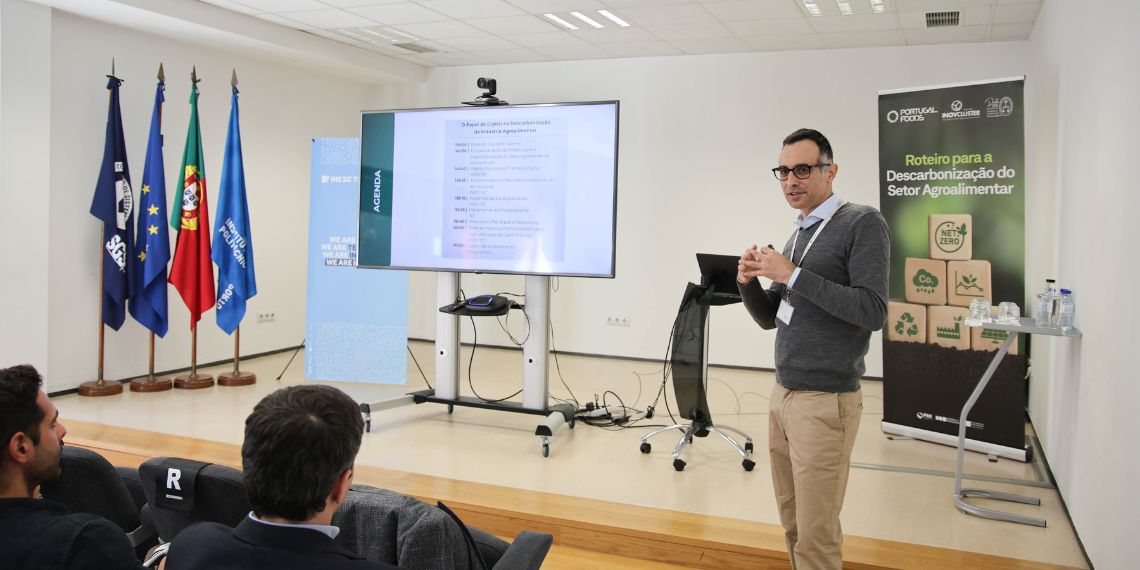Digitalisation plays a vital role in decarbonisation, serving as an enabler of energy efficiency, process optimisation, and the transition to more sustainable operations. In a sector like agro-food, where energy consumption is often high, digital transformation allows for real-time monitoring and control of resource use, while supporting data-driven decision-making.
This is where INESC TEC comes in. As part of the Roadmap for Decarbonising the Agro-Food Sector, the institute developed specific methodologies to support the digital transformation of companies within the sector; let’s take a closer look.
The first step involved applying a structured methodology to assess the digital maturity of agro-food businesses and evaluate their current state of digitalisation. This was followed by the definition of a customised digitalisation roadmap for the sector, using technologies and tools to identify inefficiencies, favour opportunities for continuous improvement, and support strategic decision-making. This initiative is led by INESC TEC researchers Filipe David Ferreira, António Baptista, Reinaldo Gomes, Pedro Senna, and Paulo Marques.
“The goal is to guide companies: from the diagnosis to the implementation of pilot-projects and strategic digital transformation initiatives. This roadmap includes the identification and recommendation of enabling technologies such as smart sensors, information systems, systems integration, AI, digital twins, and business intelligence solutions, among others,” explained Filipe David Ferreira.
While there is still progress to be made, companies are now developing strategies and roadmaps for digital transition – and capacity building is a crucial step. Alongside the development of tools to support digitalisation processes, the roadmap included specific sessions with companies to ensure that digital transformation is not only implemented but also embedded within organisations.
“Through this initiative, INESC TEC has not only steered the agro-food sector towards effective digitalisation but also ensured that this transformation meets the goals of decarbonisation, increased competitiveness, and the transition to a more sustainable and resilient economy,” the researcher added
The Roadmap for Decarbonising the Agro-Food Sector also benefits from the scientific and technical support of INEGI, Universidade Católica Portuguese, and Colab4Food. In addition to developing and applying digital transformation methodologies, INESC TEC contributed with expertise in mapping future paths for energy consumption and greenhouse gas emissions.
The researchers mentioned in this news piece are associated with INESC TEC.


 News, current topics, curiosities and so much more about INESC TEC and its community!
News, current topics, curiosities and so much more about INESC TEC and its community!